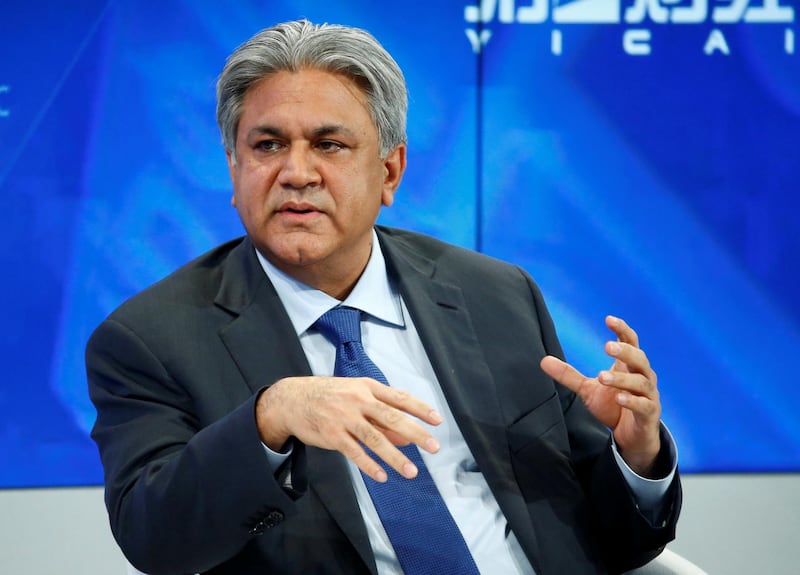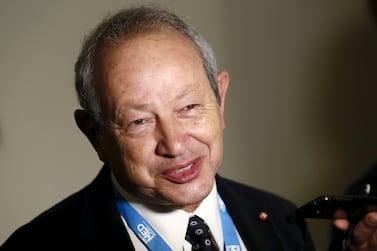Former Abraaj chief executive, Arif Naqvi, remains in custody after his lawyer said that he was not able to pay a £15 million (Dh72mn) security bond, the largest of its kind ever ordered by a British court.
In a hearing at Westminster Magistrates' Court on Friday, Hugo Keith QC, Mr Naqvi's lawyer, said the amount the court was asking for security bond was "unprecedented" and said "although we are inching towards paying it, we are not there yet".
However, £650,000 in surety money was paid in court by three associates of the former Abraaj chief executive.
The three sureties are Javed Ahmed, a Pakistani American businessmen and former CEO of British multinational agribusiness Tate & Lyle; Asif Rangoonwala, founder of South Street Asset Management and Malcolm Beckett, who works in the property business.
Mr Ahmed and Mr Rangoonwala agreed to pay £300,000 in surety each in court, while Mr Beckett said he would pay £50,000.
The details of the sureties were agreed two weeks ago, according to Mr Keith.
Mr Ahmed and Mr Rangoonwala said they had known Mr Naqvi for over 30 years each, while Mr Beckett said that he had known him for 18 years and their wives went to university together.
Mr Naqvi attended the hearing on Friday via video call but remained mainly silent throughout the morning.
He has won bail last on the condition of him paying the bond. His bail conditions will mean he has to remain at his West London home for 24 hours a day and will have to wear an electronic tag.
He would also have to hand over his passport and not apply for any additional travel documents. His current travel documents were seized at the time of arrest.
Judge Tamweer Ikram then amended the conditions so that they include access to a mobile phone.
"I will grant you bail. You will, however, remain in custody until these conditions are fully met," he said.
Mr Naqvi faces up to 45 years in US prisons if found guilty of conspiracy and fraud charges connected to the collapse of the Abraaj Group last year. He denies the charges brought in the US.
Mr Naqvi is fighting extradition over the charges.
The Pakistani citizen allegedly directed a ploy to inflate the value of some of Abraaj's funds in an attempt to cover up the company's liquidity issues, while trying to attract a $6 billion (Dh22.03bn) investment for a new venture.
He denies the accusations and says the idea he took money out for his own personal benefit is "ludicrous".
A spokesperson told The National: "Mr Naqvi maintains his innocence, and he fully expects to be cleared of any charges. For almost a year since the commencement of the provisional liquidations, he has been working tirelessly to maximise returns for Abraaj's creditors."
Founded in 2002, Abraaj grew to become one of the world's most influential emerging-market investors, with stakes in health care, clean energy, lending and real estate across Africa, Asia, Latin America and Turkey.
Mr Naqvi is one of several Abraaj officials caught up in a probe of what had been the Middle East's biggest private-equity fund.
Mustafa Abdel-Wadood, the former managing partner of the private equity firm, was granted bail by a New York judge on April 30 after he put up two homes as security for a $10 million bond. The Wall Street Journal reported on Friday that Egyptian billionaire Naguib Sawiris was one of the guarantors of the $10 million bail bond for Mr Abdel-Wadood.
Abraaj, which managed almost $14 billion in funds, was forced into liquidation last June after a group of investors, including the Bill & Melinda Gates Foundation, commissioned an audit to investigate the alleged mismanagement of money in its health-care fund.
Mr Naqvi's next extradition hearing is on June 12.







